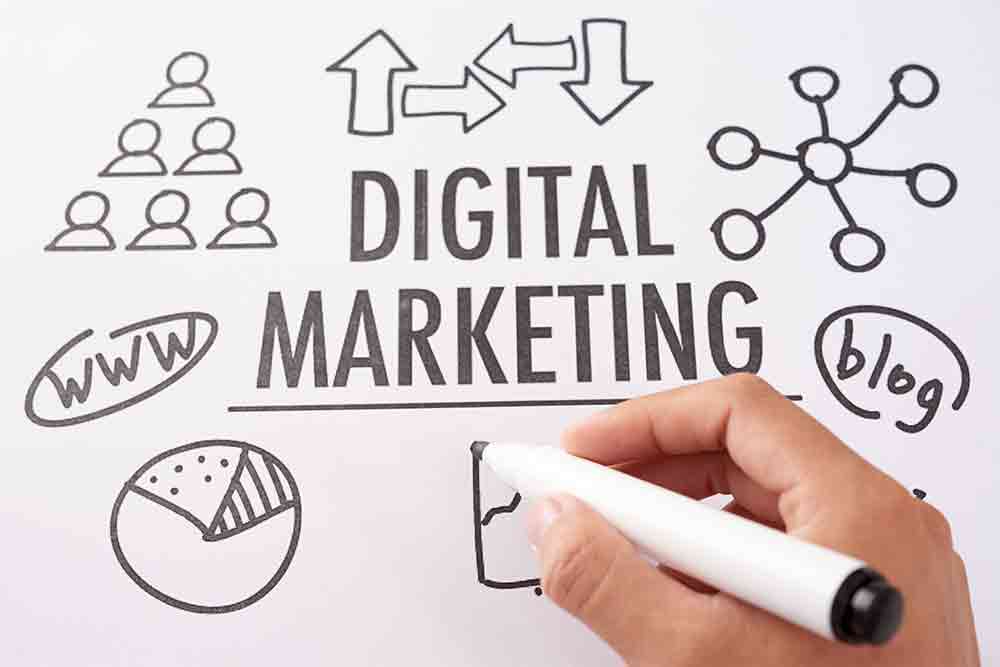
What is Digital Marketing
Confused by what Digital Marketing actually entails? Heard terms such as SEO, Organic and Backlinks but unsure what they all mean? This guide breaks down all of the key components of a successful Digital Marketing strategy and their definition.
Some people define digital marketing as any kind of marketing that uses any electronic devices, including radio and television. Other people say its marketing that’s based purely on Internet related technology. Then there is ‘inbound’ and ‘outbound’, ‘Social’ and ‘Mobile’, ‘e-marketing’ and ‘web marketing’ to name a few more…
What is digital marketing?

The advent of the Internet has given rise to a bewildering range of terminology and jargon in ‘modern marketing’ created by marketing agencies and professionals, often to make the topic seem far more complex than it really is! Of all the definitions researched in the creation of this article, our favourite comes from Wikipedia;
“Digital marketing is the marketing of products or services using digital technologies, mainly on the Internet, but also including mobile phones, display advertising, and any other digital medium”.
Digital Marketing is the most common term found in use today, so that is the term we use to cover the variety of components that make up a successful digital marketing strategy.
So, let’s dig into these components that make up digital marketing. Research across several of the biggest players in the marketing industry show claims between five and nine categories within digital marketing. We lean towards the lower end of that range at six, although arguments can certainly be made for the omissions.
When it comes to answering what is digital marketing it commonly comprises of:
Search Engine Optimisation (SEO)
This is the process of getting your website ‘found’. Spending thousands of a premium site is pointless if it is not ranking highly (if not at the top) of search engine result pages. And by this we mean Google search algorithms with them managing some 97% of all search enquiries. Higher ranking sites increase the amount of organic traffic (free visitors) to your website.
Social Media Marketing
This practice promotes your brand and your content on social media channels to increase brand awareness, drive traffic, and generate leads for your business. The channels you can use in social media marketing include: Facebook, Twitter, LinkedIn, Instagram, Snapchat and Pinterest to name the most frequently used
Content Marketing
You may have heard the phrase ‘content is king’ uttered by digital marketing professionals and whilst content is still important, with over 1 billion blogs now in existence (source?) good agencies are finding more creative ways to drive traffic to your website.
Basically, content marketing is the creation and promotion of assets such as blog posts, whitepapers, infographics and eBooks with the intent of increasing brand awareness, establishing authority in your industry and ultimately generating sales leads and customers.
Different content types need to be used at the right time, on the right platform. A thousand-word blog will not attract prospects at early stages of the sales cycle through a Facebook Ad, however it may well convince a prospect who is ready to buy that your product / service is the best through your detailed breakdown contained within a whitepaper!
“The Automated Responder Chatbots BMD created for our company have been a game changer. They run 24×7 answering all FAQ’s and even navigate interested visitors in booking a meeting with us!”
Video Marketing
As tempting as it was to include video marketing within content marketing, we believe it now deserves its own category! The use of video marketing has exploded in recent years with the advent of platforms such as YouTube and Vimeo and offer some significant advantages over ‘traditional’ content, as well as supporting most other components of digital marketing.
GlobalWebIndex reports that 92 percent of internet users (and there are currently more than 4.39 billion of them!) now watch videos online each month, meaning that more than 4 billion people around the world are consuming online video content in 2019.
When done professionally, video content is 50x more likely to drive organic search results than plain text (Omnicore, 2018). Videos on landing pages will also increase conversions by 86% (Wordstream, 2018) as well as increase visitors ‘time-on-site’, a key metric used in Google’s search ranking.
Video content works for both audio and visual learners, that’s two of the three main sensory receivers by which a person learns new information.
Pay-Per-Click advertising
Whilst technically PPC is defined as a method of increasing traffic to your website through paid adverts, the most common type of PPC has become Google Ads. These paid ads allow you to achieve the top slots on Google’s search results for a price “per click” of the ad.
It is worth bearing in mind that there are other platforms where you can use PPC, including;
Paid ads on Facebook (posts that Facebook will push to the newsfeeds of people who match your target audience), Sponsored Messages on LinkedIn (messages sent to specific users based on key attributes) and Twitter Ads campaigns (posts promoted to the news feeds of a target audience).
Whilst still powerful tools in their own right, BCS recommend judicious use of these techniques as a short-term boost to traffic, whilst building your organic traffic. Some recent research indicates a reduction in clicks through paid Ads and an increase in costs per click due to the competitiveness of popular keywords and search terms.
Email marketing
Companies still rely heavily on email marketing as a way of communicating with their prospects and customers. Email is often used to promote content, discounts and events, as well as to direct people toward the business’s website.
However, research again indicates a reduction in the ‘opens’ and ‘clicks’ of email marketing (especially for sales and marketing purposes) and with the introduction of new, more interactive technologies such as live-chat, that often offer significantly higher engagement metrics than email.
As digital marketing is dependent on technology which is ever-evolving and fast-changing, the same features should be expected from digital marketing developments and strategies. This is why it is important to continuously monitor the effectiveness of both new and existing trends to ensure you are maximising the return on your marketing spend, or, partner with a Digital Marketing Agency that does!





